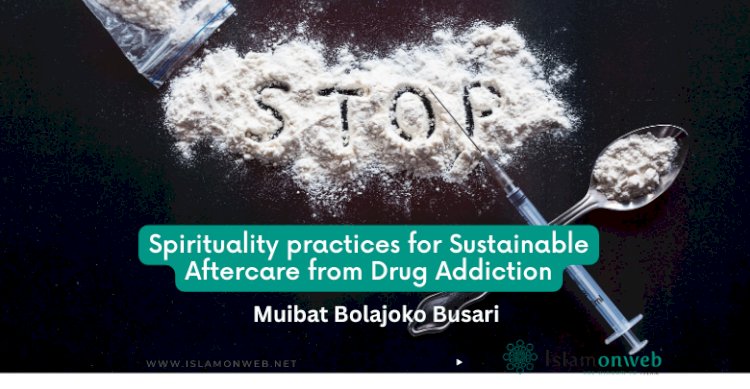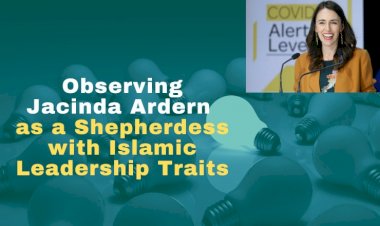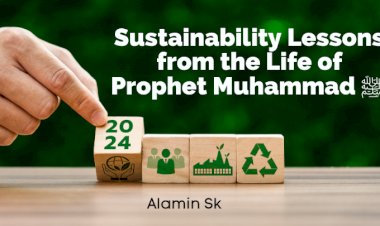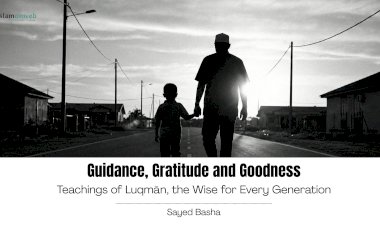Spirituality practices for Sustainable Aftercare from Drug Addiction
Drug abuse of a substance has been known to cause adverse effects impacting every organ in the human body . There are several types of drug abuse in modern times, such as stimulant abuse from hard drugs like cocaine, crack, Meth, and Adderall. Substance abuse began by either using addictive drugs for recreational purposes, wishing to be intoxicated, or abuse used from prescribed medication. Hence, experts have developed several tips for preventing substance abuse. Firstly, understand how substance abuse develops (National Institute on Drug Abuse, 2007). Secondly, avoiding temptation and peer pressure and blocking the means toward unhealthy friendships and relationships. Thirdly, the help of mental health therapists is very germane in post-drug abuse care and treatment. Medical history of mental health from illnesses like anxiety, depression, or post-traumatic stress disorder that usually trigger substance use to alleviate them requires observation so that victims do not return to drug or alcohol abuse. Finally, maintaining a well-balanced lifestyle in food, sleep, and other socio-economic and psychosocial activities requires several dimensions (Lauren Brande, 2023).
A recent report by National Centre for Drug Abuse Statistics, USA (2023), shows a rise in teenage drug abuse in the last year. The report portrays a significance of 1 out of 8 teenagers having abused illicit substances in the last few years. Despite the effects of drug abuse on the emotional, health, and well-being of youth, parents have challenges in helping their children avoid drug abuse and taking healthy choices. Parents have the challenge of recognizing the warning signs of teen drug abuse. Moreover, when there are red flags of drug abuse in teens, parents should beware of a sudden change in friends, eating habits, sleeping patterns, physical appearance, coordination, or school performance of their children. Another important warning sign is the signal of irresponsible behavior, poor judgment, and a general lack of interest in usual household activities. When a teenager avoids other family members by withdrawing from parent and sibling’s presence or breaking the general family rules, it is important to watch out against it. Parents should be worried about strange substance containers, their purpose, and the source to arrest the use of illicit substances (Shahid Ali, 2011).
Drug abuse therapists and counselors have often recognized and recommended several measures to forestall the challenges of substance abuse in teenagers. Still, the extent of the sustainability of these is little studied. Experts are unanimous that parents should seek help from therapists and counselors on teen drug abuse by engaging in an open and honest discussion about the problem and not the personality. Continuous checks on abstinence and forestalling the cause of drug abuse. However, the role of spiritual practices in maintaining sustainable aftercare from drug abuse has been generating attention in recent times(Lander et al., 2013).
Spirituality in Islam may be considered as Tazkiyah (purification). The purification of self, wealth, and environment is part of spirituality. However, for this article, spirituality is meant to address the essence of Tazkiyah nafs (purification of the soul). Islamic spirituality encapsulates purification from self every filth and defilement. It also focuses on the development of the soul, wealth, and environment (Faysal Burhan, 2002).
The work of Ibin Jaddu, (n.d.) explicates the view of Imam Al-Ghazali on spiritual practice as a personal obligation (fard ʻaini) upon every individual. Learning spiritual intelligence is a means to the end to enhance self-purification (Elmi & Zainob, 2015) However, other scholars opine that spiritual intelligence and practices are a communal responsibility that is an obligation on every person in the society that realized the need to purify the soul, self, wealth, and personal environment from diseases and abuse.
The importance of spiritual practice in post-drug abuse care and treatment cannot be overemphasized as the Quran mentioned that {surah Shams:9] “He has succeeded who purifies it” (the soul).
The therapist has argued that drug abuse is associated with addiction, whereby the abuser is used to the substance and finds it difficult to quit. This is why after treatment of drug abuse, there are challenges of complete cure and avoidance of the substance. This is why scholars are suggesting the role of Islamic spirituality practices to enhance the complete cure of post-drug abuse treatment because the soul of a human is one of the most internal powerful enemies again self. The soul calls for all tyrannical actions, and iniquities of person and heart diseases. The prophet usually recites the supplication in seeking refuge (Sayyed Muhammad bin Jaddu, n.d.).
According to the hadith of Abu Hurairah with Ibn Abi Hatim said I heard the Messenger of Allah (PBUH), reciting the verse [As-Shams:8]: “And inspired it (with conscience of) what is wrong for it and (what is) right for it” then he said (PBUH): “Oh Allah, grant my soul its piety and purify it. You are the best purifier for her, you are its master and controller (Ibn Kathīr, bin Umar, 1997). The application of spiritual practice in the process of achieving sustainable aftercare from drug addiction requires two main processes. First, complete avoidance of blameworthy behaviors such as substance abuse and the continuous inculcation of praiseworthy activities. These praiseworthy activities include the obligations, recommended, and voluntary acts of worship. Since the obligatory act of worship is compulsory for every believer, commission attracts rewards while omission leads to punishment. Hence, an increase in the voluntary act (Nawafil) is the second category that is useful for the spiritual development of the soul, wealth, and the environment. This can be inferred from the Hadith of the prophet (ﷺ) thus: The Messenger of Allah (peace and blessings of Allah be upon him) said, “Verily Allah ta’ala has said: ‘Whosoever shows enmity to a wali (friend) of Mine, then I have declared war against him. And My servant does not draw near to Me with anything more loved to Me than the religious duties I have obligated upon him. And My servant continues to draw near to me with nawāfil? (supererogatory) deeds until I Love him. When I Love him, I am his hearing with which he hears, and his sight with which he sees, and his hand with which he strikes, and his foot with which he walks. Were he to ask [something] of Me, I would surely give it to him; and were he to seek refuge with Me, I would surely grant him refuge (Al-Bukhārī, 2002, no. 6502).
Therefore, it is recommended for believers to uphold the five pillars of Islam as the fundamental practices (1) shahādah (continuous testification of the oneness of Allah, (2) Solat (worship), (3) Zakat (obligatory alms), (4) Sawm (fasting in Ramadan), (5) Hajj (Pilgrimage to the House of Allah). Apart from obligatory essence, spiritual development is enhanced by voluntary practice doing nawāfil (voluntary) in solat, zakat, sawm, and pilgrimage. This is because the more the practices of nawāfil after the obligatory act of worship the higher the spiritual propensity in getting rid of iniquities. All these acts are what is embodied in what is called spiritual intelligence. Studies have shown that drug addicts could be rehabilitated through this process (Somayeh et. al). A process whereby an addict for example is exposed to an enabling environment of daily constant five daily prayers with its nawaafils, fasting, Allah’s dhikr and daily repentance will automatically reinstate his mental health and of course will make him restrain from abuse of drugs. Knowing that the observance of all these spiritual acts attracts rewards from the creator not only in the hereafter but in the present world in terms of good quality life and a peaceful mind. These will lead to a complete rehabilitation that will not experience a relapse.
References
A-Quran Al-Kareem
Faysal Burhan. (2002). Al-Tazkiyah (Inner-Self Purification)- The Gate to Prosperity. Centre for Islamic Studies.
Ibn Kathīr, bin Umar, I. (1997). Tafsīr-al-Qurān-al-‘Azīm (S. bin M. Al-Salāmah, Ed.; 2nd ed.). Dār Ṭībah.
Lander, L., Howsare, J., & Byrne, M. (2013). The impact of substance use disorders on families and children: From theory to practice. Social Work in Public Health, 28(3–4), 194–205. https://doi.org/10.1080/19371918.2013.759005
Lauren Brande. (2023, February 14). Effects of Stimulant Drugs: Short-Term, Long-Term, Side Effects and Treatment. American Addiction Centres.
Muḥammad bin Ismāʻīl Al-Bukhārī, A. A. (2002). Saḥiḥu Al-Bukharī. Dār ibn Al-Kathīr.
National Centre for Drug Abuse Statistics. (2023). Substance Abuse Statistics. https://drugabusestatistics.org/, Accessed : 28/02/2023
National Institute on Drug Abuse. (2007). Drugs, Brains, and Behavior: The Science of Addiction. www.humanconnectomeproject.org
Sayyed Muhammad bin Jaddu. (n.d.). Tazkiyah al-Nafs. Saydu Al-Fawwaid. http://www.saaid.net/bahoth/81.htm
Shahid Ali, C. P. M. S. J. ; E. K. O. R. K. B. M. S. & Q. Z. (2011). Early Detection of Illicit Drug Use in Teenagers.
About the author: Muibat Bolajoko Busari completed her bachelor’s and Master of Science degrees in Pharmacology from the University of Lagos, Unilag, Akoka. She also studied Arabic language and linguistics at Al-Azhar university Cairo, Egypt. During her academic career, she developed a keen interest in toxicology with extensive research on the toxicity of herbal plants. She has worked as a pharmacology lecturer at the School of Nursing Yaba and published papers in the areas of toxic effects of drugs, improving the safety and efficacy of existing drugs, and exploring new drug targets. Today, Muibat continues to write and research pharmacological topics, with an integration of spirituality and Halal science.
Disclaimer
The views expressed in this article are the author’s own and do not necessarily mirror Islamonweb’s editorial stance.
























Leave A Comment